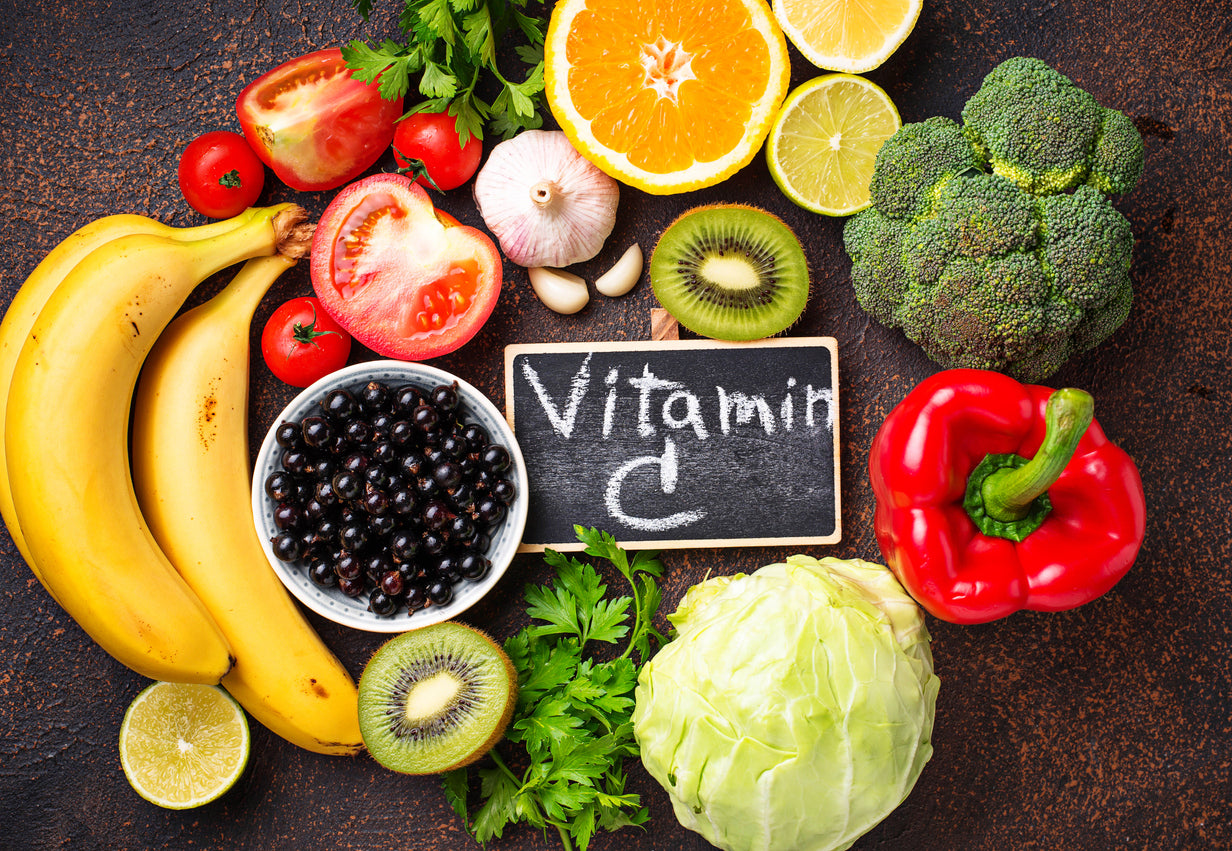was added to your cart
3 Science-backed Benefits of Vitamin C

3 Science-backed Benefits of Vitamin C
You may already max out on vitamin C-rich foods when you want to boost your immune system, but did you know that vitamin C is responsible for more than just fighting off infections?
Vitamin C, or ascorbic acid, is a water-soluble vitamin and a powerful antioxidant. Because it’s water-soluble, your body is unable to store it, and so you need to get enough of it from your diet to prevent a deficiency.
You can find vitamin C in a range of plant-based foods such as strawberries, kiwi fruit, bell peppers, broccoli and (yes, you guessed it) oranges.
In the body, vitamin C has a huge range of benefits. This includes supporting the immune system, protecting your body cells, keeping your skin, blood vessels and bones healthy, promoting collagen production, assisting in wound healing, and even helps to prevent an iron deficiency – it’s safe to say that vitamin C is a real nutrient powerhouse!
Here’s what the science says about taking a vitamin C supplement every day.
 Strengthens your body’s natural defences
Strengthens your body’s natural defences
Because vitamin C is a potent antioxidant, it works to protect your body cells from harmful molecules called free radicals. These molecules are basically toxic substances produced by cells as the body processes foods, drinks and responds to the environment.
When there’s a build-up of free radicals in the body, it puts the body at an increased risk of chronic diseases, such as heart disease, diabetes, stroke and arthritis.
Vitamin C helps increase your blood antioxidant levels, which in turn helps support your body’s natural defences to fight free radicals and inflammation. Some studies also show that vitamin C intake can boost antioxidant levels by up to 30%.
May lower your risk of heart disease
Experts believe that vitamin C intake is linked to a lower risk of heart disease. Evidence suggests that it may protect heart health by reducing blood pressure and protecting your arteries against damage.
Current research also suggests that low levels of vitamin C may increase the risk of cardiovascular disease (CVD) – though more research is needed in this area to draw any conclusions.
 Promotes skin health
Promotes skin health
Vitamin C is a necessary component for forming collagen in the body. In fact, vitamin C is involved in every step of the manufacturing process and ultimately helps the body make the collagen needed to help promote the health of our skin (hello, youthful-looking skin).
As we age, our natural collagen reduces, which is one of the reasons why we begin to notice wrinkles and fine lines. Boosting your vitamin C intake helps provide the body with the resources it needs to continue to produce collagen in the body.
 What happens if you don’t get enough Vitamin C?
What happens if you don’t get enough Vitamin C?
If you aren’t getting enough vitamin C in your diet, you will likely feel fatigued, to begin with. You may notice inflammation in your gums, poor wound healing, and you may bruise more easily.
If you’re deficient in vitamin C for at least 12 weeks, you could be at risk of developing scurvy – the most severe form of a vitamin C deficiency. Scurvy symptoms include coiled hair, fatigue, rash, muscle weakness and bleeding gums. The good news is that these symptoms can be avoided by staying on top of your vitamin C intake.
To help you stay on top of your vitamin C intake, you can supplement your diet with our Vitamin C tablets that provide 1000mg per serving. We've also included Rosehip in our formula for increased antioxidant and anti-inflammatory support.

Riya Lakhani ANutr is a registered nutritionist and health writer with a special interest in plant-based nutrition. She has completed a Bachelor’s and Master’s degree in Human Nutrition, and has developed a passion for writing about all things plant-based.

